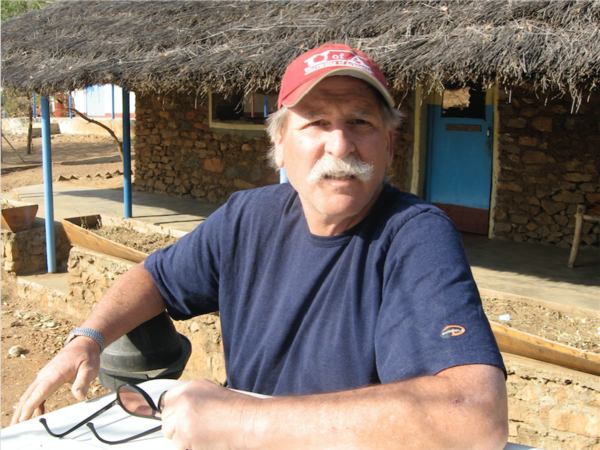The short story is this: Professor Samuel Totten realized that people in Sudan were being systematically starved and killed, so since 2011 he has repeatedly risked his life to provide them with sustenance.
Some background: Sudan had a civil war that led, in 2011, to the creation of a new country, South Sudan, and an apparent peace between this new nation and Sudan. But there\'s been no peace for the people of the Nuba mountains, in Sudan. They had fought on the side of the south, the area that's now a new nation. They had had no say in the negotiations, and were forced to remain in the north, blocked from emmigrating to the new country.
These mountain people resisted the terms of the 2011 agreement, and the government of Sudan responded by carrying out daily bombings and ground attacks against the entire population, and by forbidding humanitarian organizations from assisting them. The result has been the deliberate destruction, torture, starvation, and deaths of thousands of people, many of them children. It is genocide.
Totten is a professor of education at the University of Arkansas who focuses on genocide. He's done research in many African locations, and was frustrated by the lack of attention from the world to the situation he saw in Sudan: "I decided that if the international community was not going to act, then concerned individuals would have to step up and provide food." He went about organizing fund-raisers and soliciting donations from individuals and organizations in Arkansas and beyond.
Since then, he and several other volunteers-an interpreter, a lorry driver, and a few others-have risked their lives first to buy food from South Sudanese merchants and then to cross the border into Sudan and trek through the Nuba mountains delivering the food to starving communities. Since there are no roads in those mountains, the trip usually takes about a week and is regularly interrupted by bombings (in December 2014 alone, 450 bombs were dropped on civilian targets)-all this in temperatures of over 100 degrees.
The bombings are harrowing. On one such occasion, writes Totten, it "resulted in our running helter-skelter seeking rocks to hide behind or a culvert to get tucked into in order to avoid the shrapnel."
Despite all, on each trip, Totten manages to deliver tons of food and supplies, typically sorghum, lentils, salt, sugar, and cooking oil. Between 2012 and the spring of 2014, Totten made four trips, bringing in food, medicine, and supplies worth about $50,000.
When Totten makes it home, a flight from Yida to Juba, from Juba to Nairobi, from Nairobi to London, from London to Atlanta, and from Atlanta to Fayetteville, his recovery is not easy:
"Almost every time I am in the Nuba Mountains, I seem to contract this or that malady. This time around, ugly, painful sores popped up on my forehead, neck, stomach and back, along with a raw throat and a piercing headache I just could not get rid of no matter what I did. The upshot is that I ended up seeing three doctors back here in Fayetteville (my general practitioner, a dermatologist, and a tropic disease specialist), had several vials of blood drawn, was put on four different medications, had a sonar scan of my liver, and have, most recently, been referred to a gastroenterologist."
Totten has written about his experiences in the book, Genocide by Attrition: The Nuba Mountains of Sudan (Transaction Publishers, 2012) and founded the Post-Genocide Education Fund, which provides full scholarships and living expenses to young survivors of genocide across the world who want to attend universities. He also plans more trips to the Nuba Mountains and remains steadfast in not only studying genocide but in fighting it, on the ground.
It's dangerous, but he's deeply motivated, saying: "The killing of infants, preschoolers, school-age children, and preadolescents should be beyond the pale. Unfortunately, and sadly, it is not . . ."

